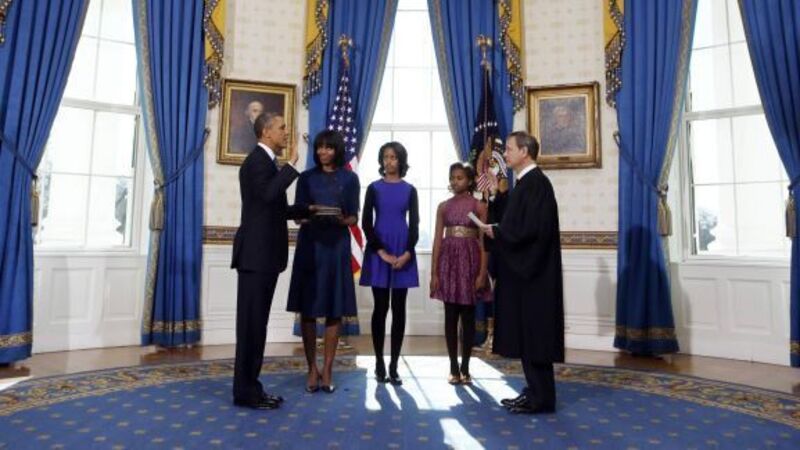Sun, 20 Jan, 2013 - 18:00
US President Barack Obama has been sworn in for a second four-year term.
Chief Justice John Roberts administered the oath of office today in the Blue Room of the White House.
Already a subscriber? Sign in
You have reached your article limit.
Subscribe to access all of the Irish Examiner.
Annual €130 €80
Best value
Monthly €12€6 / month
Introductory offers for new customers. Annual billed once for first year. Renews at €130. Monthly initial discount (first 3 months) billed monthly, then €12 a month. Ts&Cs apply.
CONNECT WITH US TODAY
Be the first to know the latest news and updates
CourtsHeathrowPlace: CapitolPlace: White HousePlace: Pennsylvania AvenuePlace: US Naval ObservatoryPlace: Arlington National CemeteryPlace: SyriaPlace: IsraelPlace: AsiaPerson: ObamaPerson: US PresidentPerson: US president Barack ObamaPerson: Chief JusticePerson: John RobertsPerson: first lady Michelle ObamaPerson: SashaPerson: MaliaPerson: Joe BidenPerson: Sonya SotomayorPerson: BidenPerson: AmericansPerson: Mitt RomneyEvent: Iraq warEvent: Afghan warOrganisation: USOrganisation: republicansOrganisation: IranOrganisation: Supreme CourtOrganisation: Metropolitan African Methodist Episcopal ChurchOrganisation: Pew Research Centre for the People & the PressOrganisation: RepublicanOrganisation: WashingtonOrganisation: TehranOrganisation: RussiaOrganisation: Congress















